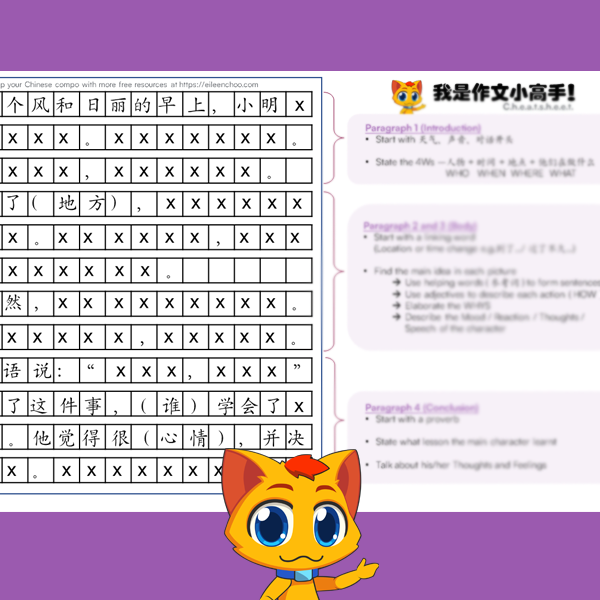
Is Mandarin hard to learn for English speakers?
Learning Mandarin Chinese has often been perceived as a formidable challenge for many people who speak English as their first language. However, contrary to popular belief, Mandarin Chinese isn’t as daunting as it may seem.
In this post, let’s see how mastering Mandarin is an attainable goal for English-speakers and learn some tips to make your Mandarin learning journey a whole lot smoother.
Busting the myths of why Mandarin Chinese is so hard to learn
1. Oh my gosh…the pinyin tones are confusing!
The first challenge that most English-speaking learners face is the tonal nature of the language. English is to Chinese is like phonics is to hanyu pinyin.
Each phonic has a fixed sound. However, in Mandarin Chinese, each pinyin has 4 main tones – the first tone (flat tone), second tone (rising tone), third tone (dip tone) and fourth tone (falling tone). On top of that, there’s also a neutral tone where there is no variation in the pitch.
Depending on how you pronounce each Chinese word, you can end up changing the meaning of the word or causing a misunderstanding. For example, the pinyin “ma” can mean “mum”, “numb”,“horse”, “scold” or just an exclamation in their various tones.
These tones might take you some time to get used at the start, but once you’ve figured how to pronounce these sounds of Mandarin, you’ll gain the power of combining different pinyin and reading the sounds becomes easy peasy!
Tackling Tones Methodically
Mastering tones are integral to Mandarin pronunciation. To refine your tone accuracy, check out the mnemonic devices and tone practice drills on my IG page. With systematic practice and some patience, you’ll be able to improve significantly over time.
2. Why are there so many strokes in a word?
The next scary thing about the Chinese writing system is the number of strokes that make up a Chinese character.
English is simple. We write with simple letters, we use the Latin alphabet. Mandarin Chinese is more than that. Each Chinese character consists of multiple strokes that can look like scribbles to untrained. However, beneath these strokes lies the beauty of Chinese cultures.
Although there are over 100,000 characters in the Chinese language, the good news is, you don’t need to know them all. Knowing around 3,000 of them will be enough to help you become fluent in the language.
Chinese characters isn’t as hard as you think
The Chinese writing system can seem overwhelming at first. However, many Chinese characters are derive from pictures that have been simplified overtime. For example, the word 口 (kǒu) looks like the mouth of a person and the word 人 (rén) looks just like a person walking. There are also common Chinese radicals that you can combine with these words to form new Chinese characters.
By breaking down characters that you’ve learnt into their radicals and components and understanding their underlying meanings, you can identify the meaning of new words. So the trick is to start small. The more characters you learn, the easier it becomes to recognise new ones and guess their meanings.
Regular practice and exposure to characters through reading and writing will help you with retention and recognition.
3. A different form of grammar
Mandarin Chinese grammar is different from many other languages such as English because of its lack of tenses, verb conjugations, and plurals. This simplicity makes it much easier for new learners to grasp basic sentence structures.
For example in the case of 我是,你是,他是,the use of verbs in Mandarin Chinese is extremely straightforward. Chinese verbs 是(shì) remain the same regardless of the subject of the sentence. There are also no tenses to remember.
Frequently Asked Questions
1. How important is cultural understanding in learning Mandarin?
Cultural understanding is integral to mastering Mandarin, as language and culture are deeply intertwined. Learning about Chinese customs, traditions, and societal norms enriches language learning and fosters cross-cultural communication.
In conclusion, while Mandarin Chinese may present initial challenges, English speakers can still master the language with some perseverance and practice.
Whether you are considering to take Mandarin as a foreign language for interest, travel or in preparation for a new job, it’s definitely worth the challenge when you hear gasps of surprise and admiration for mastering the world’s toughest languages.



